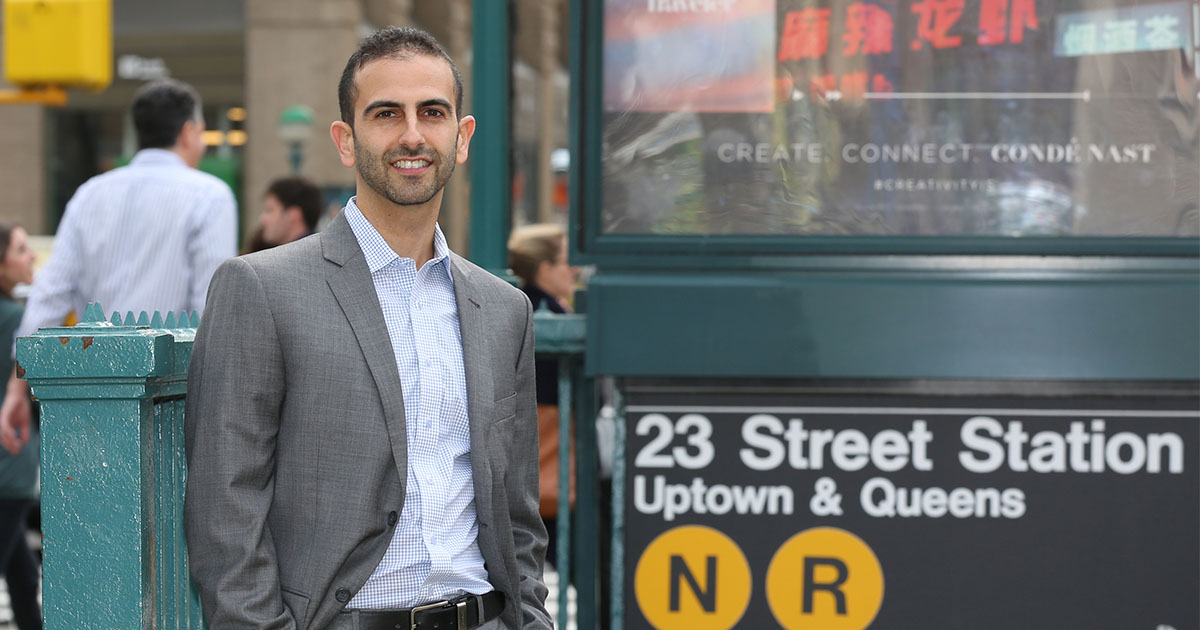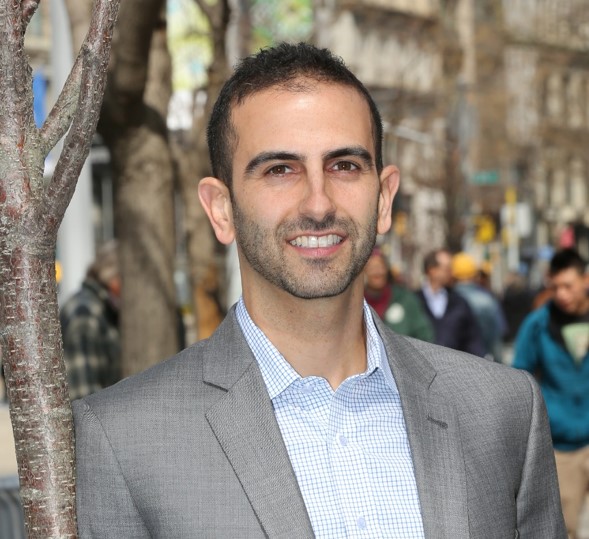From Quant Finance to Fintech
In our previous post, we checked in with one of our recent grads. Continuing our Alumni Spotlight, today we’ll showcase the career progression of Liran Amrany, MFE Class of 2004.

Berkeley MFE: After graduating from UC Berkeley with a BA in Economics and Molecular & Cell Energy, you stayed at Cal and pursued an MFE. What made you decide that the Berkeley MFE Program was right for you?
Liran: I knew I was interested in finance and capital markets, but I wasn't sure exactly what I wanted to do. That, and I was also very good at (and liked doing) math, so MFE seemed like a great fit to be able to find a quantitative role within capital markets.
Berkeley MFE: Tell us about your time at J.P. Morgan. You spent 9 years with the bank and in that time made your way to Executive Director. What were some of the challenges you faced and how did the Berkeley MFE prepare you to overcome them?
 Liran: The MFE helped me hit the ground running. I joined the Credit Hybrids group in 2004 as a structurer. At the time, some of the traders were heavy quant but my structuring teammates were less so. That meant the group often leaned on me for most things technical, and I really had a strong understanding of how the product worked, and how making small changes might impact pricing and hedging. Had I joined the group directly out of undergrad, it would have taken me a very long time to pick up that level of understanding.
Liran: The MFE helped me hit the ground running. I joined the Credit Hybrids group in 2004 as a structurer. At the time, some of the traders were heavy quant but my structuring teammates were less so. That meant the group often leaned on me for most things technical, and I really had a strong understanding of how the product worked, and how making small changes might impact pricing and hedging. Had I joined the group directly out of undergrad, it would have taken me a very long time to pick up that level of understanding.
Berkeley MFE: What changes and innovations have you seen in the financial industry? What are your thoughts on the future of fintech?
Liran: I worked through the financial crisis, so I saw a ton of changes. From 2004-2007, spreads were tightening and the market was really focused on innovative ways to get higher returns without taking too much risk. Obviously the credit crisis flipped that on its head, but we continued to see lots of innovation in ways for clients to hedge risk. I'd say the the last few years have focused much on automation. Electronic trading is helping automate capital markets, and algorithmic trading strategies are getting more popular, both on a retail and institutional level. This is where fintech especially is making a huge impact.
Berkeley MFE: Given your experience as the Co-founder & CEO of Debitize, a financial technology startup that helps consumers manage their money better, what advice would you give to Berkeley MFE students who are thinking about starting their own company?
Liran: It's a real grind. Everything is 10x harder and takes 10x longer than you think it will. But it's incredibly rewarding, and I don't mean that financially (though hopefully that as well for the lucky few). My biggest piece of advice would be to do your research before you make the leap - there are plenty of resources online, and network like crazy - the tech community has a great pay it forward culture. If you can, try working at a startup first before you strike out on your own, that can be incredibly helpful and save you lots of time and mistakes.
Berkeley MFE: As some final words of wisdom for our readers, what is some of the best advice you received to help you advance throughout your career?
Liran: Linda […Kreitzman, Executive Director of the Berkeley MFE Program] always pushes MFEs to be better at networking, and most of us take it for granted - but I can't tell you how many times I've run into people I had met years earlier and wished I had stayed in better contact. It's the best way to find a better job, recruit better employees, raise money, and more. And you can't start only when you want something out of it - a good network is built over time.
Berkeley MFE: Thank you Liran and we wish nothing but success for you and Debitize!
For the most up-to-date info, follow us on Facebook, Twitter, and LinkedIn. Learn more about the Berkeley MFE Program and how we can help you launch your career by going to our website.






